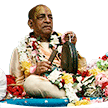Regulative Principles - an essential subject: Difference between revisions
Nayanranjani (talk | contribs) (Created page with "Category:Essential Subjects <!----------------------- edit below this line -----------------------> <!------------------------ begin introduction text below ------------...") |
(Vanibot #0041: Moves Choose Another box to the end) |
||
| Line 2: | Line 2: | ||
<!----------------------- edit below this line -----------------------> | <!----------------------- edit below this line -----------------------> | ||
<!------------------------ begin introduction text below ------------------------> | <!------------------------ begin introduction text below ------------------------> | ||
The 4 regulative principles stated in shastras are: no meat-eating, no gambling, no intoxication and no illicit sex. If one wants to become a serious inquirer and student of the scriptures, then one has to follow these very basic, yet essential regulative principles. However, just following these principles is insufficient to advance quickly. One must take shelter of a spiritual master who can guide him in the right direction, who can explain to him the meaning of these regulative principles and the reason as to why one must abide by them to be able to move ahead on the spiritual platform. | |||
Srila Prabhupada's books, lectures, conversations and letters offer a comprehensive presentation of this essential subject as seen in the Vaniquotes '''[[Vaniquotes:Category:Regulative Principles|Regulative Principles]]''' category. An introduction from his books is given below in the following | Srila Prabhupada's books, lectures, conversations and letters offer a comprehensive presentation of this essential subject as seen in the Vaniquotes '''[[Vaniquotes:Category:Regulative Principles|Regulative Principles]]''' category. An introduction from his books is given below in the following 8 quotes. | ||
<!-------- end introduction text and don't touch next three lines ---------> | <!-------- end introduction text and don't touch next three lines ---------> | ||
== Quotes from Srila Prabhupada's books == | == Quotes from Srila Prabhupada's books == | ||
<!----------------- edit quote boxes below this line -----------------> | <!----------------- edit quote boxes below this line -----------------> | ||
{{VaniQuotebox| | {{VaniQuotebox|Activities in devotional service under regulative principles must be followed even by the pure devotee|Activities in devotional service under regulative principles must be followed even by the pure devotee. But when he realizes his actual position in relationship with the Lord, he can, along with the discharging of regulative service, think within himself of the Lord, under the guidance of a particular associate of the Lord, and develop his transcendental sentiments in following that associate. '''(Nectar of Devotion, Chapter 16)'''}} | ||
{{VaniQuotebox| | {{VaniQuotebox|In the beginning one is trained according to the principles of regulation under the guidance of the acarya, or spiritual master, and gradually, when one is elevated, devotional service becomes automatic and spontaneous eagerness to serve Krsna|In the beginning one is trained according to the principles of regulation under the guidance of the ācārya, or spiritual master, and gradually, when one is elevated, devotional service becomes automatic and spontaneous eagerness to serve Kṛṣṇa. '''(Nectar of Devotion, Preface)'''}} | ||
{{VaniQuotebox| | {{VaniQuotebox|In the bhakti-marga, the path of devotional service, one must strictly follow the regulative principles by first controlling the tongue|In the bhakti-mārga, the path of devotional service, one must strictly follow the regulative principles by first controlling the tongue (sevonmukhe hi jihvādau svayam eva sphuraty adaḥ (Brs. 1.2.234)). The tongue (jihvā) can be controlled if one chants the Hare Kṛṣṇa mahā-mantra, does not speak of any subjects other than those concerning Kṛṣṇa and does not taste anything not offered to Kṛṣṇa. If one can control the tongue in this way, brahmacarya and other purifying processes will automatically follow. '''(Śrīmad-Bhāgavatam 6.1.13-14)'''}} | ||
{{VaniQuotebox| | {{VaniQuotebox|The love of Godhead of those engaged in pancaratrika regulative principles depends more or less on the opulent and reverential platform, but the worship of Radha and Krsna is purely on the platform of transcendental love|There are two kinds of devotional service: the way of pāñcarātrika regulative principles and the way of bhāgavata transcendental loving service. The love of Godhead of those engaged in pāñcarātrika regulative principles depends more or less on the opulent and reverential platform, but the worship of Rādhā and Kṛṣṇa is purely on the platform of transcendental love. '''(Caitanya-caritāmṛta, Ādi-līlā 6.53)'''}} | ||
{{VaniQuotebox| | {{VaniQuotebox|The process of devotional service - beginning with chanting and hearing - is called sadhana-bhakti. This includes the regulative principles that are intended to awaken one to devotional service|The process of devotional service—beginning with chanting and hearing—is called sādhana-bhakti. This includes the regulative principles that are intended to awaken one to devotional service. Devotional service is always dormant in everyone's heart, and by the offenseless chanting of the holy names of the Lord, one's original dormant Kṛṣṇa consciousness is awakened. This awakening to Kṛṣṇa consciousness is the beginning of sādhana-bhakti. '''(Caitanya-caritāmṛta, Madhya-līlā 19.177)'''}} | ||
{{VaniQuotebox| | {{VaniQuotebox|Monarchy is better than democracy because if the monarchy is very strong the regulative principles within the kingdom are upheld very nicely|Monarchy is better than democracy because if the monarchy is very strong the regulative principles within the kingdom are upheld very nicely. Even one hundred years ago in the state of Kashmir in India, the king was so strong that if a thief were arrested in his kingdom and brought before him, the king would immediately chop off the hands of the thief. As a result of this severe punishment there were practically no theft cases within the kingdom. '''(Śrīmad-Bhāgavatam 4.13.19-20)'''}} | ||
{{VaniQuotebox| | {{VaniQuotebox|Contact between man and woman is natural, but that also must be carried out under regulative principles so that social consecration may not be disturbed or unwanted worthless population be increased for the unrest of the world|Contact between man and woman is natural, but that also must be carried out under regulative principles so that social consecration may not be disturbed or unwanted worthless population be increased for the unrest of the world. '''(Śrīmad-Bhāgavatam 1.14.42)'''}} | ||
{{VaniQuotebox| | {{VaniQuotebox|If one is fortunate enough to get the association of a pure devotee, he can easily surpass all the practices for controlling the mind by the mystic yoga process simply by following the regulative principles of Krsna consciousness|One can be gradually elevated to the standard of real knowledge, or Kṛṣṇa consciousness, by practicing austerity and celibacy (brahmacarya), by controlling the mind, by controlling the senses, by giving up one's possessions in charity, by being avowedly truthful, by keeping clean and by practicing yoga-āsanas. However, if one is fortunate enough to get the association of a pure devotee, he can easily surpass all the practices for controlling the mind by the mystic yoga process simply by following the regulative principles of Kṛṣṇa consciousness—refraining from illicit sex, meat-eating, intoxication and gambling—and by engaging in the service of the Supreme Lord under the direction of the bona fide spiritual master. '''(Nectar of Instruction, Text 1)'''}} | ||
<!----------------- edit quote boxes above this line -----------------> | <!----------------- edit quote boxes above this line -----------------> | ||
| Line 30: | Line 30: | ||
'''Regulative Principles - [[Vaniquotes:Category:Regulative Principles|explore more within this category]]'''. | '''Regulative Principles - [[Vaniquotes:Category:Regulative Principles|explore more within this category]]'''. | ||
{{EsentialSubjectTotal}} | {{EsentialSubjectTotal}} | ||
<div style="float:left;"> | |||
{{EssentialSubjectnav}} | |||
</div> | |||
__NOTOC__ | __NOTOC__ | ||
__NOEDITSECTION__ | __NOEDITSECTION__ | ||
Latest revision as of 17:20, 22 November 2020
The 4 regulative principles stated in shastras are: no meat-eating, no gambling, no intoxication and no illicit sex. If one wants to become a serious inquirer and student of the scriptures, then one has to follow these very basic, yet essential regulative principles. However, just following these principles is insufficient to advance quickly. One must take shelter of a spiritual master who can guide him in the right direction, who can explain to him the meaning of these regulative principles and the reason as to why one must abide by them to be able to move ahead on the spiritual platform.
Srila Prabhupada's books, lectures, conversations and letters offer a comprehensive presentation of this essential subject as seen in the Vaniquotes Regulative Principles category. An introduction from his books is given below in the following 8 quotes.
Quotes from Srila Prabhupada's books
Regulative Principles - explore more within this category.
Vanipedia has now over 903 introductory articles compiled from Srila Prabhupada's books under the series titled Essential Subjects. All these articles can be seen in the Table of Content on the right side of this article and also here in this Umbrella Category. Browse through them to relish the breadth and depth of Srila Prabhupada's teachings - There is a subject for everyone.







